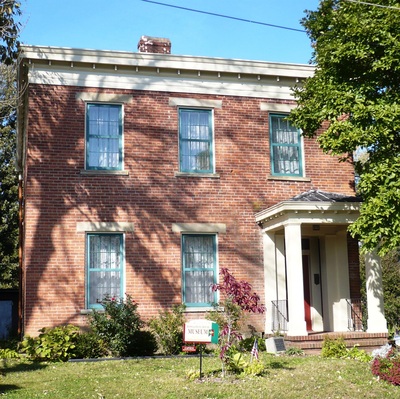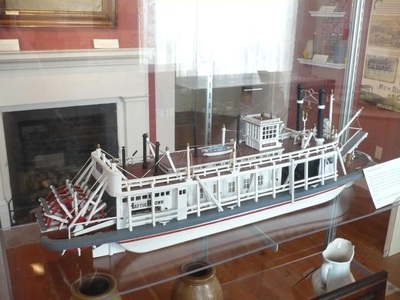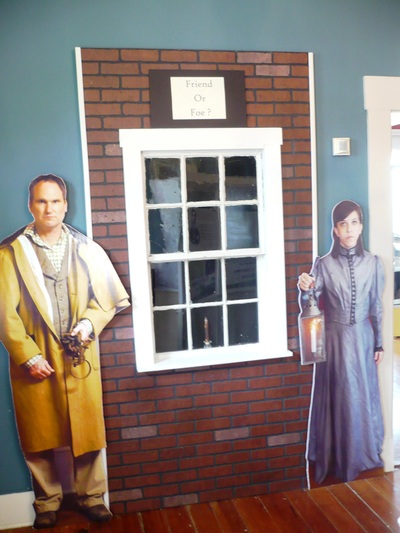ROSS-GOWDY HOUSE
The Ross-Gowdy house is listed on the National Register of Historic Places. Through the years it has served as the home of three New Richmond mayors. David Ross built the Greek Revival style house in 1853. Ross was a baker by trade and is believed to be the nephew of Betsy Ross. David Ross was mayor of New Richmond during the Civil War. The other mayors to live in the house were Charles Short and Lawrence Robbins.
Thomas Gowdy, a prominent merchant, lived in the house in 1876. In 1856 Gowdy was a defendant along with former slave Henry Poindexter in a famous Ohio Supreme Court Case Anderson v. Poindexter. Poindexter had been the slave of John Anderson of Carthage, Kentucky just across the river. Anderson allowed Poindexter to work odd jobs in New Richmond to make money for himself. Anderson contracted with Poindexter to purchase his freedom and accepted a promissory note signed by Poindexter and co-signed by Gowdy and two other white businessmen from New Richmond, Jackson White and Frances Donaldson. Anderson sued Poindexter in Clermont County Common Pleas Court after he demanded payment on the note and Poindexter and his co-signers refused to pay. The Ohio Supreme Court unanimously upheld the lower courts ruling that once Anderson allowed Poindexter to step foot in the free state of Ohio that he became a free man and the contract was void. The decision was in conflict with the U.S Supreme Court decision in the Dred Scott case. The home was acquired by Historic New Richmond Inc. in 1972
Thomas Gowdy, a prominent merchant, lived in the house in 1876. In 1856 Gowdy was a defendant along with former slave Henry Poindexter in a famous Ohio Supreme Court Case Anderson v. Poindexter. Poindexter had been the slave of John Anderson of Carthage, Kentucky just across the river. Anderson allowed Poindexter to work odd jobs in New Richmond to make money for himself. Anderson contracted with Poindexter to purchase his freedom and accepted a promissory note signed by Poindexter and co-signed by Gowdy and two other white businessmen from New Richmond, Jackson White and Frances Donaldson. Anderson sued Poindexter in Clermont County Common Pleas Court after he demanded payment on the note and Poindexter and his co-signers refused to pay. The Ohio Supreme Court unanimously upheld the lower courts ruling that once Anderson allowed Poindexter to step foot in the free state of Ohio that he became a free man and the contract was void. The decision was in conflict with the U.S Supreme Court decision in the Dred Scott case. The home was acquired by Historic New Richmond Inc. in 1972



